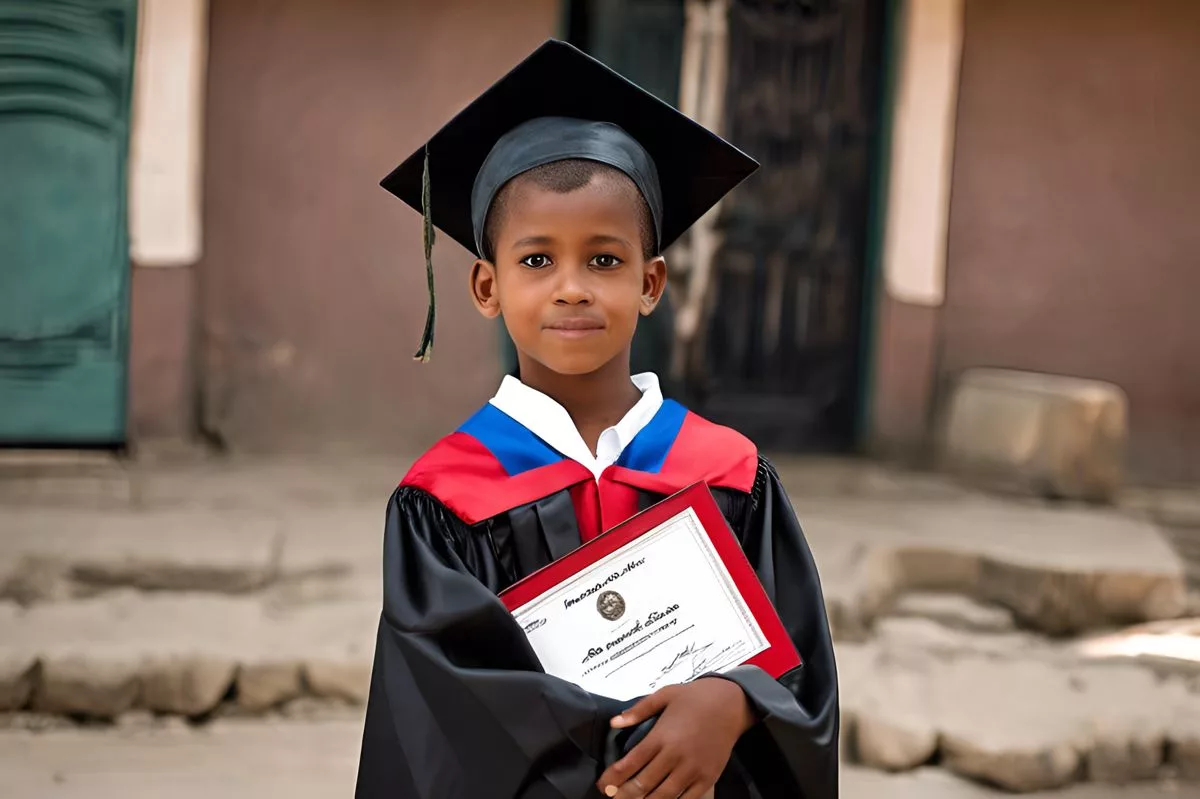In her State of the Nation Address debate, Minister Lindiwe Zulu demonstrated a strong commitment to social progress in South Africa. She highlighted the historical context of the country’s progress since the end of apartheid, and emphasized the importance of shared effort and partnerships in achieving fairness and prosperity. Zulu also discussed the impact of social assistance programs and the government’s response to COVID-19, including the introduction of the Basic Income Grant. Her speech was a powerful testament to her unwavering dedication to the people of South Africa.
“Fervent Commitment to Social Progress: A Scrutiny of Minister Lindiwe Zulu’s State of the Nation Address Debate” provides a historical perspective on South Africa’s progress since the end of apartheid. Minister Lindiwe Zulu emphasizes the importance of shared effort and partnerships in ensuring fairness and prosperity, and highlights her administration’s endeavors in reducing poverty. She also discusses the impact of social assistance programs and the government’s response to COVID-19, including the introduction of the Basic Income Grant. Zulu’s address is an influential testament to her unwavering dedication and commitment to the people of South Africa.
A Display of Humility and Resolve
On a pleasantly warm afternoon of February 13, 2024, at the Cape Town City Hall, Ms Lindiwe Zulu, MP and the Minister of Social Development, ascended to the dais for a debate following the State of the Nation Address. Zulu’s every utterance pulsated with a firm determination and promise to uplift the lives of the citizens of South Africa. Her discourse, rich in historical and political context, candidly showcased her administration’s accomplishments and candidly drew attention to the obstacles that are yet to be overcome.
In the opening of her address, Zulu acknowledged the united leadership of the African National Congress (ANC), and expressed her appreciation for the chance to serve the people of South Africa. Her humility was noticeably evident as she recognized the public’s high expectations and the responsibility entrusted to her to provide lasting solutions to the issues faced by the people of South Africa.
A Historical Perspective and Achievements
Zulu took the listeners on a historical journey to the era when apartheid was at its peak, portraying a harsh image of a time when a free and democratic South Africa seemed like an unattainable fantasy. She attested to the unyielding fight for freedom waged by the pioneers of the liberation movement, reminding the audience that the present democratic scenario has been carved out from the sacrifices of these courageous individuals.
Reflecting on the progress made since the end of apartheid, Zulu spotlighted the establishment of a robust basis for a flourishing constitutional democracy. She highlighted her administration’s endeavors in reducing the severe poverty experienced by sidelined groups including children, women, the elderly, and persons with disabilities.
Zulu’s address was not just a mere recitation of data and statistics, but a deeply introspective analysis of the government’s role in ensuring fairness and prosperity. She underscored the significance of shared effort and the formation of public-private and people-focused partnerships.
Defiance Against Oppression and Plans for Future
With fervent oration, Zulu echoed Nelson Mandela’s commitment to continue the prolonged journey to freedom, vowing to annihilate misery and reinstate dignity to every citizen of South Africa. She displayed her resistance against oppressive policies and the privileged few who amassed their fortunes at the expense of the majority.
Addressing the harsh reality of the socio-economic structure inherited by her administration, she articulated the destructive effects of apartheid policies that perpetuated racial and spatial poverty traps, fragmented social welfare systems, and unfair welfare programs. The implications of these policies, she pointed out, resulted in a deficiency of sustainable financing and unequal funding, among other detrimental effects.
Despite these hurdles, Zulu illuminated the remarkable progress made by her administration. Emphasizing the expansion of social protection coverage from 2.4 million in 1994 to 28 million, she accentuated the role of the National Development Agency (NDA) in offering sustainable livelihoods and entrepreneurial possibilities through grant funding and capacity building.
The Impact of Social Assistance Programs and Response to COVID-19
Furthermore, she emphasized the pivotal role of the social assistance program in alleviating poverty and redistribution. To substantiate her argument, Zulu referred to the 2023 National Senior Certificate results, stating that out of the 897,775 Grade 12 students who sat for the NSC, 543,786 full-time students were social grant beneficiaries, translating into a noteworthy achievement of her administration’s socio-economic policies.
In the wake of the COVID-19 pandemic, Zulu reiterated the ANC-led government’s commitment to fulfill its constitutional obligation to assist the most vulnerable. She acknowledged how the administration introduced the Special COVID-19 Social Relief of Distress during the peak of the pandemic, offering income aid to over 8 million jobless adults.
Zulu also highlighted the plans for the introduction of the Basic Income Grant that would further boost the government’s efforts in reducing poverty. Despite criticism from the opposition, she asserted that such initiatives align perfectly with ANC policy documents and were not mere political maneuvers.
In conclusion, Zulu expressed her confidence in the administration’s ongoing pursuits towards social and economic transformation, and expressed hopefulness for the forthcoming National General Elections. Her speech was not just a representation of her administration’s successes and future goals, but was an influential testament to her unwavering dedication and commitment to the people of South Africa, to whom she remains steadfastly responsible.
1. What was Minister Lindiwe Zulu’s focus in her State of the Nation Address debate?
Minister Lindiwe Zulu’s focus in her State of the Nation Address debate was demonstrating a strong commitment to social progress in South Africa, emphasizing the importance of shared effort and partnerships in achieving fairness and prosperity.
2. What was Minister Lindiwe Zulu’s historical perspective on South Africa’s progress?
Minister Lindiwe Zulu’s historical perspective on South Africa’s progress since the end of apartheid portrayed a harsh image of a time when a free and democratic South Africa seemed like an unattainable fantasy. She highlighted the establishment of a robust basis for a flourishing constitutional democracy and her administration’s endeavors in reducing the severe poverty experienced by sidelined groups.
3. What were some of the obstacles mentioned by Minister Lindiwe Zulu in her address?
Minister Lindiwe Zulu mentioned the socio-economic structure inherited by her administration, the apartheid policies that perpetuated racial and spatial poverty traps, fragmented social welfare systems, and unfair welfare programs. The implications of these policies resulted in a deficiency of sustainable financing and unequal funding, among other detrimental effects.
4. What was the impact of social assistance programs highlighted by Minister Lindiwe Zulu?
Minister Lindiwe Zulu highlighted the pivotal role of social assistance programs in alleviating poverty and redistribution. She referred to the 2023 National Senior Certificate results, stating that out of the 897,775 Grade 12 students who sat for the NSC, 543,786 full-time students were social grant beneficiaries, translating into a noteworthy achievement of her administration’s socio-economic policies.
5. How did the ANC-led government respond to COVID-19 according to Minister Lindiwe Zulu?
According to Minister Lindiwe Zulu, the ANC-led government introduced the Special COVID-19 Social Relief of Distress during the peak of the pandemic, offering income aid to over 8 million jobless adults. She also highlighted the plans for the introduction of the Basic Income Grant that would further boost the government’s efforts in reducing poverty.
6. What was the overall message conveyed by Minister Lindiwe Zulu in her address?
The overall message conveyed by Minister Lindiwe Zulu in her address was her unwavering dedication and commitment to the people of South Africa, to whom she remains steadfastly responsible. Her speech was not just a representation of her administration’s successes and future goals, but was an influential testament to her commitment towards social and economic transformation.












